10 Fabric Softener Alternatives to Keep Your Clothes Fresh
Author: Anne Cowart | Editor: Omar Alonso
Review & Research: Jen Worst & Chris Miller
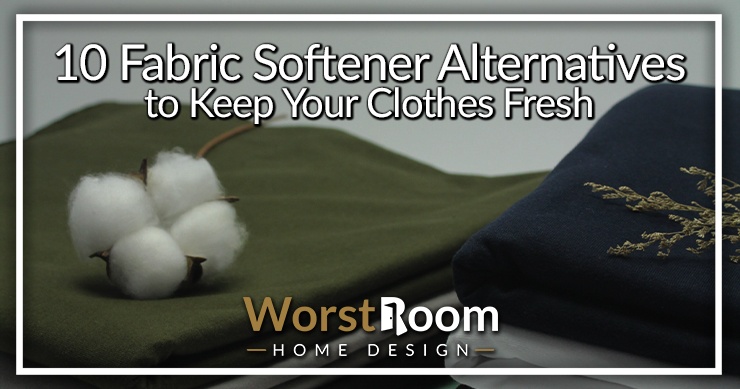
No one likes to start off their day by wearing a stiff shirt. It looks and feels horrible, which is why fabric softener alternatives are used during laundry to make your clothes soft and free of static buildup.
The downside to store-bought fabric softeners is that they're costly and filled with chemicals you may not care to be exposed to. To are free from such extra burdens in life, we're here to save the day with a detailed list of substitutes for fabric softener just for you.
10 Fabric Softener Alternatives
Below are the products that you can opt for instead of fabric softeners. Let’s get to know them. You can also check out our dryer sheet alternatives for another way to freshen up your clothes with items you likely already have in the home.
Vinegar

You most probably use vinegar a lot for cooking, but you must have also known that there are many uses for vinegar outside the kitchen as well. Vinegar is very well-known for cleaning purposes, and it is also very useful during laundry.
For your laundry, you will need about 3 tablespoons of vinegar on average to do its job as a fabric softener. You need to know that you should not add too much vinegar to your laundry, or else you will end up with a strong and unpleasant smell of a garden salad.
Keep in mind that not all kinds of vinegar can be used as an alternative for fabric softeners. The two best types of vinegar for your laundry are distilled white vinegar and apple cider vinegar.
To use vinegar as a fabric softener, you just have to add it to laundry in the washing machine and let it run for its normal duration of the wash cycle. Another advantage of using vinegar for your laundry is that you save money.
Since white vinegar and apple cider vinegar are very inexpensive, you end up saving a lot of money over time which you would have otherwise spent on the overpriced chemical fabric softeners. Various types of vinegar are quintessential fabric softener substitutes, by themselves or used in combination with other methods below.
Wool Dryer Balls
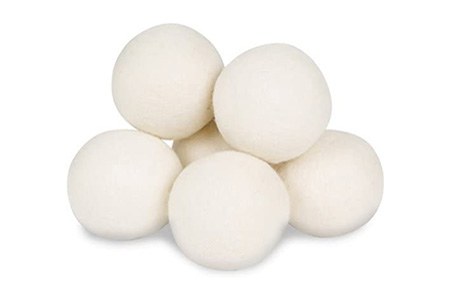
It is truly surprising how balls of wool can make your laundry so easy to do. These wool dryer balls increase air circulation, which removes static buildup and results in softer clothes. You just have to toss 2 or 3 of these balls into the dryer with your wet clothes and let them dry.
Because of the increased airflow with wool dryer balls, the time taken for your clothes to dry in the dryer will also be reduced. After your drying cycle is done, you can take out the wool balls and reuse them again.
These wool dryer balls can be reused over 50 times. This reusability characteristic, combined with the reduced electricity consumption from the decreased drying time, will help you in saving some coins as well.
If you do not have wool dryer balls in your house or do not have access to them, you may use tennis balls. As fabric softener alternatives they'll help maintain air flow between the clothes to maximize drying.
Tennis balls work in the same way as wool dryer balls, but since they are more expensive, you might not want to go out of your way to separately buy them just to use them as a substitute for fabric softeners. But do not use tennis balls if your dryer is not heavy-duty, they could damage it.
Some people are allergic to wool, so if you have someone like that in your household whose laundry you do, you should then only avoid using wool dryer balls.
Tennis Balls
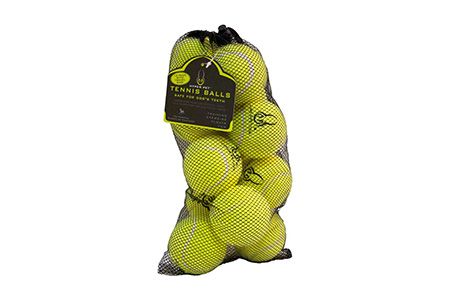
Like we mentioned above, you can choose to use tennis balls as dryer balls if you have them around. They'll tumble around inside the dryer as the clothes are flipped about and help create space between the clothes to maximize air flow and improve drying.
This faster drying results in clothes that come out fluffier and more comfortable on your skin. You don't have to worry about tennis balls coming apart on you for a long time. They're simply wool fibers attached to rubber.
So like wool dryer balls, you could add drops of essential oils onto the balls (or even cut a hole in them and add more to the inside). If you don't do this they won't add any scents to your clothes, but they will help reduce static cling and result in softer clothes.
Epsom Salts
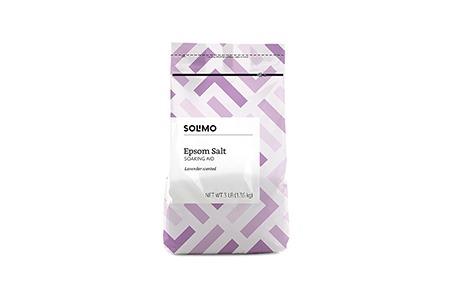
It is likely that you have seen fabric softener crystals in your superstore if you have visited the laundry aisle before. However, we aren’t talking about those types of crystals, rather we are talking about homemade natural fabric softener crystals.
To make the fabric softener crystals, you will just have to add drops of your favorite essential oils to about 4 cups of Epsom salts. Some salts already come flavored. I have some now that are scented like lavender for baths. Making your own scented ones is probably the easiest home made fabric softener you can come up with.
If you want, you can avoid the essential oils since they might be slightly expensive, but we suggest you add about 20 to 30 drops to the 4 cups of Epsom salt since it will make your clothes smell nice.
As you can tell — this recipe is very simple, and Epsom salts aren’t expensive either, so you won’t have to be spending a lot of money. On the other hand, some essential oils have steep prices.
Essential Oils

Essential oils are distilled fragrances where all of the extra moisture is removed so you have a very concentrated amount of active ingredients in a small amount of liquid.
In our case of fabric softener alternatives you'll want to a couple full eyedroppers (or 2 to 3 teaspoons) to about 2 cups of vinegar and mix them sufficiently. You can then add this mixture to a spray bottle.
Spray this essential oil and vinegar mixture into the dryer bin before adding and tumbling your clothes in it rather than directly to your clothes. This can get expensive with the amount of essential oils it calls for, but works well, especially if you have a lot of oils sitting around not being used.
Soap Nuts
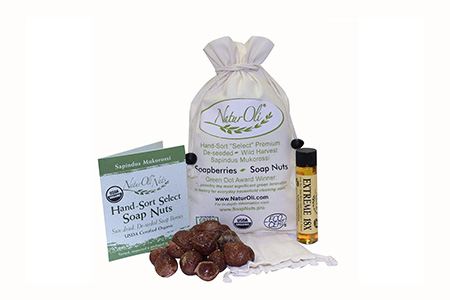
Soap nuts are the shells of the soapberry nut that have been dried and hardened. What we've learned about them is that when they're wet for long enough they'll release a chemical called 'saponin' that has a soapy-like foam feel and has a softening effect on your clothes.
This natural alternative to fabric softener can be reused several times each, making them an economical choice, as well as an environmentally friendly and renewable option. Some will tell you that soap nuts work as a substitute for laundry detergent as well, but I'm not willing to take it that far in my own laundry routine.
Baking Soda

Although baking soda is an ingredient that was essentially made for baking, over time, we have come to discover the countless ways it can be used for cleaning and laundry.
You have to add about half a cup of baking soda to your dirty laundry when you put it into the washing machine and let it run for its normal washing cycle.
Baking soda works great for preventing your clothes from getting stiff and reduces the static cling. Additionally, it is also very effective in removing odors from clothes as well as keeping your white clothes a bright white.
You can find baking soda almost anywhere, so you won’t have any problem getting access to it; you probably even have a container of baking soda in your pantry right now. Furthermore, it is very cheap so you will also be saving money using it in your fabric softener alternatives, which is always a plus point.
Lastly, since baking soda is free of any odor, you might want to add a few drops of essential oils if you like your clothes to smell nice after they have been washed. You can use any leftover baking soda in your cat litter alternatives as well, in which it's a part of many mixtures.
Hair Conditioner
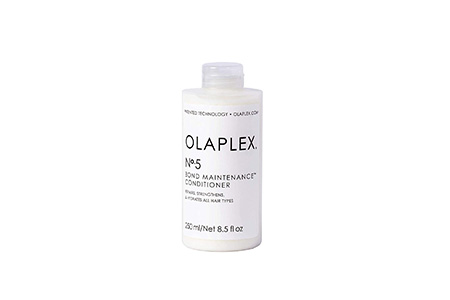
Seeing hair conditioner on this list might have caught you off guard, but we can assure you it is they're great substitutes for fabric softener. You can't use hair conditioner directly in your laundry, if you do, you will be just wasting your money mostly.
For it to work properly, it must be mixed with vinegar as well as water. The process of making this mixture is very simple, so do not be intimidated.
First of all, insert a funnel into a large bottle. Then, add 6 cups of water followed by 3 cups of vinegar, and finally, add 2 cups of your preferred hair conditioner.
Make sure you mix the ingredients gently. If you shake them vigorously, then it will lead to the formation of a lot of foam. If you take care you'll have some effective fabric softener substitutes on your hands.
We would suggest you use a hair conditioner that is not packed with too many chemicals. However, you may use one which has a nice scent. Also, there is no reason you should use a very expensive bottle of hair conditioner since it won’t make any difference.
Add this mixture to your laundry in the same amount as you would add your regular fabric softener, and let the washer do the rest.
Vegetable Glycerin
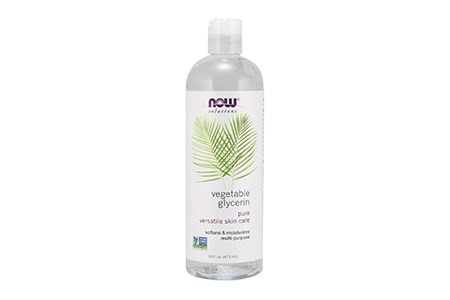
Commonly known as glycerol, vegetable glycerin is a scent-free and clear liquid that is often used in lotions as well as several types of soaps.
It is said to be good for your skin, and especially for people with sensitive skin. It also turns out to be a tremendous alternative for fabric softeners and is one of the best on this list.
You have to add 1 cup of vegetable glycerin and 2 cups of water to a bottle or a container and then stir the ingredients together. This should be used exactly like your regular store-bought fabric softener, and it will do the job even better.
Finding vegetable glycerin might be a bit difficult depending on where you live, but it is also extremely cheap, so it will definitely help in keeping your wallet from getting a little less empty. It is also eco-friendly, unlike the fabric softeners found in the market.
Since vegetable glycerin is odor-free, it won’t leave any foul smell on your clothes. Like with all the other odor-free fabric softener alternatives in this list, you may also add a few drops of your preferred essential oil to your laundry when using glycerol.
Aluminum Foil
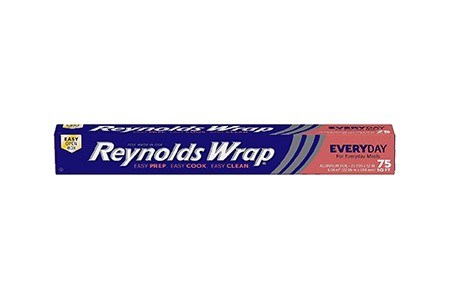
Aluminum foil is yet another item from the kitchen that works as a fantastic fabric softener alternative. You have to scrunch your aluminum foil sheets into balls, and then toss them into the dryer so they can work as a fabric softener.
Since aluminum is a metal and can conduct electricity, it decreases the static buildup in clothes. Therefore, aluminum foil balls are effective in keeping your clothes from getting stiff. It's a strange but effective alternative to fabric softener.
Unlike tennis balls, these aluminum foil balls are very light; so, you do not have to fret that they will end up damaging your washing machine.
You will most likely find aluminum foil sheets at any convenience store in your area, and they are also inexpensive, which is definitely an advantage. You can also use aluminum foil as one of the plastic wrap alternatives, so you get double usage out of it.
Fabric Softener Alternatives You Have in the Home Now
Wearing stiff clothes neither looks nor feels good, so you must use something like a fabric softener to make your clothes soft. However, using chemical fabric softeners is not the right way to go when you can make home made fabric softener just as easily.
After reading through the details of all these fabric softener alternatives, you can clearly see how you have a wide range of options. Use any of these items in the right way as described, and we can guarantee you will get excellent results.
You'll Also Enjoy:
- 12 Ironing Board Alternatives for When Those Wrinkles Must Go
- 7 Washer & Dryer Pedestal Alternatives You Probably Already Have
- 8 Washing Machine Alternatives for When You're in a Pinch
- 10 Clothes Wringer Alternatives for When There's No Other Options
- 18 Types of Dishwashers & Features to Wash Away Your Woes




